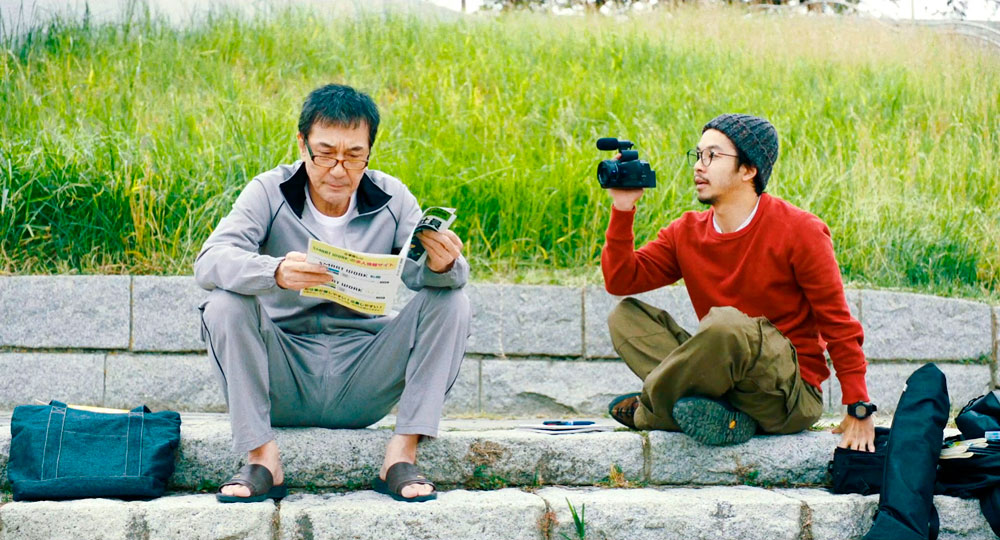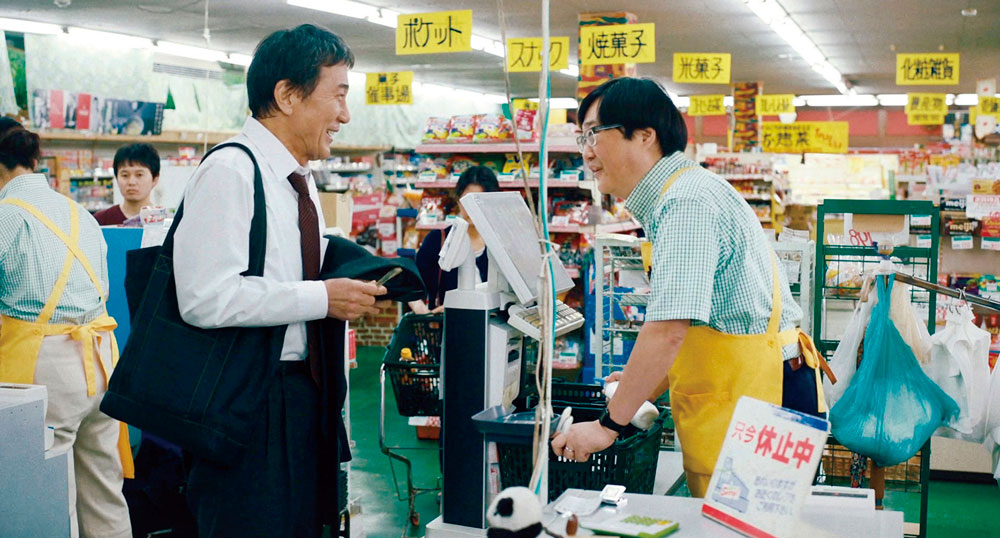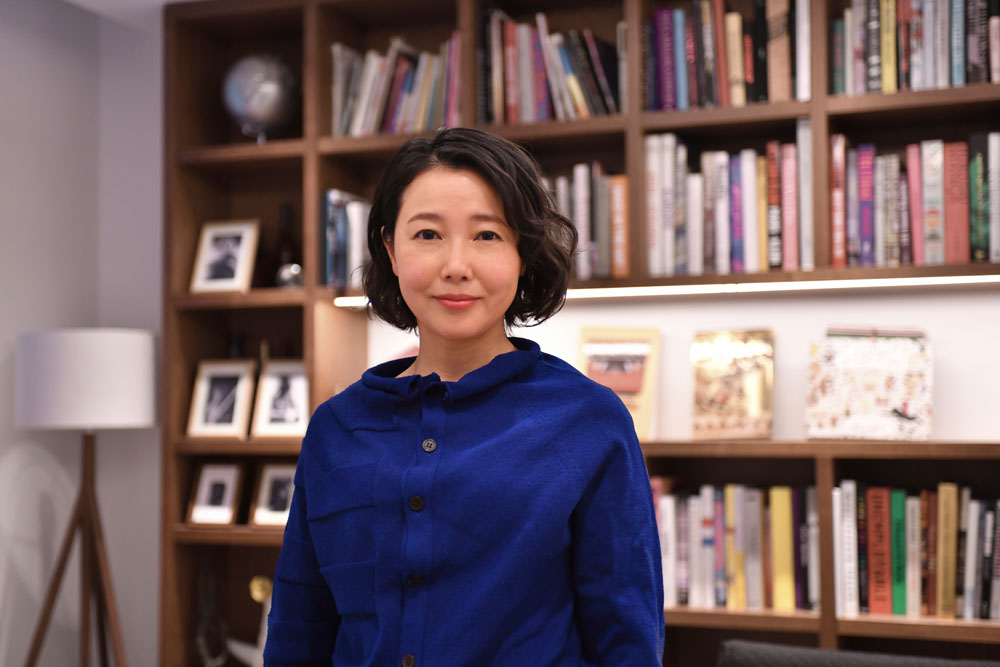!["The Wonderful World" Director Miwa Nishikawa I felt Ryuzo Saki's gaze throughout "Identification Book" [Director's Interview Vol.105]](https://cinemore.jp/images/3d448f9074ea2ddf3ca71468e9b57345e7c3d79afb7c131197c524b146cc9752.jpg)
"The Wonderful World" Director Miwa Nishikawa I felt Ryuzo Saki's gaze throughout "Identification Book" [Director's Interview Vol.105]
Ryuzo Saki's gaze
Q: Compared to Nishikawa's previous works, this one seemed like a very orthodox story. Also, I get the impression that there are quite a lot of parts of the movie that are exactly like the original, and I was surprised to see that fight scenes and other scenes were so faithfully reproduced that I thought they were storyboards from the original novel. How did you strike a balance between the parts you adapted yourself and the novel?
Nishikawa: Adapting a novel was my first experience, so I wasn't able to choose the best novels from the beginning. For example, there were many other scenes that I would have liked to have made into a movie, such as the episode where he takes a rebellious attitude toward the guards and spills the feces and urine that he had accumulated. Also, since it was a movie, we spent a considerable amount of time deciding whether we should include the main character's background or the scene of the murder that led to him going to prison.
However, the scene where he stabs someone with a knife is the one that looks like a movie at first glance, but actually gives me the most sense of déjà vu. That's why I think that's the thing that needs to be cut the most, so people won't be surprised by things like that.
What makes this story interesting is not the horror and madness of the crime, but the fact that it is extremely difficult for ex-criminals to become normal. How do you accumulate such plain things that don't make a picture and turn them into a movie? I had a hard time in that area.
So, I used the character Tsunoda (Tsunota in the movie), who only appeared briefly in the novel, as the narrator for this movie. It's going to take some time, really. I'm not a professional screenwriter, so I didn't really come up with any ideas.

©Ryuzo Saki/2021 “Subarashiki Sekai” Production Committee
Q: When I watch Nishikawa's previous films and read his essays, I get the impression that he always thinks things through and creates stories from scratch. However, this time there is a story based on the original work. So, I was wondering if it was a little easier than usual.
Nishikawa: I'm not used to dramatizations, so I'm having a hard time, but there are definitely parts that I'm enjoying. Ryuzo Saki wrote some good lines. There were a lot of lines that I would never say myself, but that I wanted to write like this, so when I was able to successfully translate them into a movie, I thought, ``I did it!''
I'm glad that I was able to turn Saki's lines into a movie, but changing the period setting may have been the most difficult part. If you simply transfer it, there will be contradictions as it is no longer applicable in this day and age. I did a lot of research on that area, and I was able to shift it to modern times by fine-tuning the details.
Q: In the movie, there is a scene in which Mikami gets fooled by a fraudulent poster that says something like ``Male Partner Wanted for Ladies'' and makes a phone call. I often see posters like that, so I thought it was an original episode from the movie, but it turns out it's also in the novel.
Nishikawa: If I recall correctly, in the novel, the phone rings at home.
Q: Yes. That scene made me laugh. When I read the novel later, I was surprised at how well it translated into today's times.
Nishikawa: Nowadays, we don't have landline phones, and it's rare for us to receive sales calls at home. I was wondering what it would be like in this day and age, and I saw a poster like that in a shopping district. I thought this was great, so I snapped a picture with my smartphone, just like Mikami in the movie (lol).
Q: Regarding Tsunoda, played by Taiga Nakano, who was mentioned a little earlier, when I was reading the novel, I thought that he was based on Tsunoda, a copywriter who lives in the same apartment building. However, when I read the addendum to the novel in which Ryuzo Saki himself appears, I wonder if the Tsunoda in the movie is actually a reflection of Saki himself...
Nishikawa: Well, you're right. When I read ``Identification Book,'' I felt that there was a presence that had always been with Yamakawa (Mikami), so I cast Saki-san in the role of Taiga-kun.
The way Saki-san and Yamakawa got together in this way is seen throughout the story. For example, I believe that he is projecting himself onto the copywriter Tsunoda, and that the exchange between the supermarket manager and Yamakawa was transcribed from the exchange between Mr. Saki and Yamakawa, who were sympathetic and worried about the future. .

©Ryuzo Saki/2021 “Subarashiki Sekai” Production Committee
Q: Okay, last question. Director Nishikawa was so obsessed with Ryuzo Saki's work that he decided to make it into a movie.Do you have any other works you would recommend besides ``Identification Book''?
Nishikawa: I also like the work `` Statement Record ''. I think there were many expressions that sounded like they were taken directly from the transcripts of statements, but there was a sense of reality and vividness that could not be created in fiction, within the straightforward, business-like language. I think that's interesting.
I think all of Saki's works have similar writing styles, but `` Revenge is Mine '' and `` Tears of a Wicked Woman: Fifteen Years of Escape of Kazuko Fukuda '' are interesting as well. There's a sense that an incident is happening right next to you, which is not the fun of solving mysteries. It gives me chills.
After the interview, director Nishikawa's collection of essays, `` The Screen is Waiting, '' about the origins of the movie ``A Wonderful World,'' was released. I bought it right away and read it, and it's very interesting as it depicts the director's efforts to make it into a movie.
That's how I enjoyed ``A Wonderful World'' → `` Identification Book '' → ``The screen is waiting for me'', and now I can't wait to see this movie again. Of course, you can enjoy the movies alone, but I personally highly recommend experiencing them in this order. I can't help but feel as if I'm enjoying the movie with director Nishikawa, and that there's a whole new experience to be had.
Reserve “A Wonderful World” now ↓

Screenplay/Director: Miwa Nishikawa
Born in 1974 in Hiroshima Prefecture. He won the 58th Mainichi Film Competition Screenplay Award for his original screenplay and directorial debut, ``Jabichigo'' (2002). His second feature film, ``Sway'' (2006), was officially screened at the 59th Cannes Film Festival Directors' Fortnight and had a long run of 9 months in Japan. His follow-up, ``Dear Doctor'' (2009) won first place in the 83rd Kinema Junpo Best Ten Japanese Films. After that, he continued overseas with ``Dream Sellers'' (2012) and ``Eternal Excuses'' (16), participating in the Toronto International Film Festival. On the other hand, he has also written many novels and essays, including the novel ``Yesterday's God,'' which was based on medical research in remote areas for ``Dear Doctor,'' and the novel of the same name, ``The Long Excuse,'' which he wrote prior to making the film. Each has received high praise, including being nominated for the Naoki Award. ``The Screen is Waiting'' (published by Shogakukan), which describes the production process of this work, is now on sale.
Author Miwa Nishikawa
Release date: January 15, 2021
Regular price: 1,700 yen + tax
Format: 46-size, hardcover, 288 pages
A collection of essays about the five years since the idea of the movie ``A Wonderful World'' until just before its release.
Focusing on serialization in the novel magazine "STORY BOX", it includes reading materials with themes outside the world of movies and short stories that can be considered as another story of "Subarashiki Sekai".
Interview and text: Fumio Koda
Editorial staff and writer for CINEMORE. My favorite movies are ``The Goonies'' and ``Indiana Jones and the Temple of Doom.'' My recent favorites are 4K digitally remastered classics by Akira Kurosawa and Yasujiro Ozu.
Hair and makeup: Tomoko Chiba
"A Wonderful World"
Nationwide release on Thursday, February 11, 2021 (holiday)
Distribution: Warner Bros. Pictures
©Ryuzo Saki/2021 “Subarashiki Sekai” Production Committee

